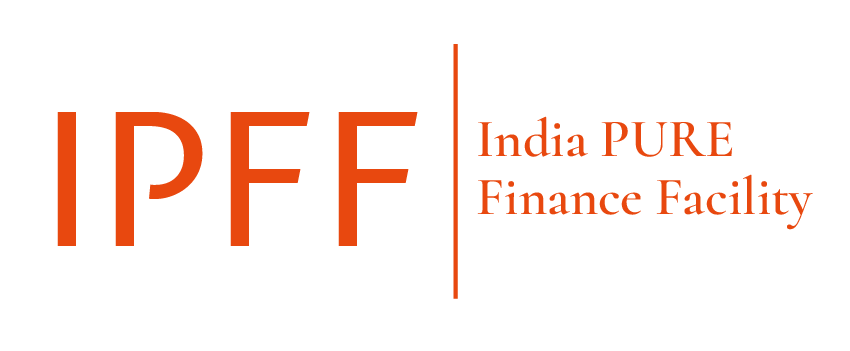FAQs for CPI-IPFF
For PURE Businesses and Developers
What project preparation services are covered by IPFF grants?
IPFF will support early-stage costs that the businesses and developers in PURE would incur while developing the PURE entities which would culminate in raising equity and other viable investment opportunities. The funds may be used to cover the costs of services that are critical to the project leading to raising equity and debt financing from both domestic and international financiers. The services can include (but are not restricted to) the following:
- Financial advisory services
- Market assessment studies including sizing and demand estimation.
- Techno-economic feasibility studies (resource estimation, technology assessment etc.)
- Product development and testing
- Third party monitoring and verification of project performance
- Legal costs for legal structuring such as preparation of documentation relating to permitting, engineering, procurement & construction, operations & maintenance, debt financing, shareholder agreements, etc.
- Environmental and social impact assessment
What can IPFF grants not be used for?
- Project preperation activities for utility-scale renewables, rooftop solar projects selling power to distribution companies or to commercial and industrial (C&I) sector
- Capital expenditure on purchase of land, procurement of equipment, or other pre-operative expenses
- Working capital expenditure on goods and supplies, payment to creditors etc, or operating expenditure like payment of salaries, maintenance costs, etc.
- Servicing any debt or liability, or payment of taxes or statutory dues
- Capitalising any reserve accounts or funds
- Retrofitting captive projects in which renewable energy sources replace traditional fossil fuel sources.
- Technologies using fossil fuels, including LNG or kerosene, other than as back-up or hybrid systems with low usage expectations.
- Any costs incurred prior to submission of the application/for services that have already been rendered.
What is the process for grant approval and who is involved?
- CPI, as the Program Manager, will conduct a preliminary screening of submitted proposals based on its assessment framework.
- CPI will then deeply evaluate the prospect to ascertain the applicant’s potential for garnering funding support and the activities required to facilitate the process, and make necessary recommendations to the Advisory Committee.
- Grants will be awarded based on the recommendations of the Advisory Committee.
- Service providers will be selected from the empanelled list. Grants shall be passed on directly the selected service providers for the required services based on achievement of pre-determined milestones.
What are the criteria for grant approval?
Applications will be evaluated on the following basis:
- Experience of the applicant company, its management and team in operating and developing PURE or related businesses/projects
- Past operating and financial performance of the company.
- Feasibility of the business model and its potential for attracting funding.
- Expected impacts in terms of environment (mitigation) and development (livelihoods, incomes, etc.) as per the objectives of the program.
What is the cycle of the grant process and how long does it take?
Applications are accepted on a rolling basis but will typically be reviewed once in six months. Typically, it may take between 3-4 months from the date of application submission for the application review process to be concluded.
What is the maximum grant provided by IPFF?
The overall size of the grant will vary depending on the proposed financing requirement, and on the number and types of services deemed necessary during the evaluation process. However, the overall grant per awardee is capped at USD 100,000.
How are service providers assigned to a shortlisted PURE applicant?
CPI, as IPFF’s Program Manager would empanel companies with relevant experience into the network of highly qualified service providers. This panel would be made available to shortlisted PURE grant awardees for selection based on a process.
How does IPFF help applicants become eligible for long-term financing?
IPFF will support project preparation activities that are necessary for the shortlisted entities to access financing. IPFF grants shall be paid directly to the professional service providers on confirmation by the PURE business or project developer of completion of the specific work.
For maximizing the chances of applicants getting long-term financing, the activities proposed to be funded should ideally include financial advisory services. Alternately, the non-financial advisory services like market assessment or feasibility study could have been requested for by an investor/ lender as a part of precedent conditions for financing.
Service Providers
How will the empanelment process proceed after the Service Provider applies?
The Program Manager will review and vet applications from Service Providers according to the eligibility criteria. All shortlisted Service Providers will be contacted by the Program Manager to complete the process of empanelment, which may include additional required documentation and references.
What are the eligibility criteria for becoming an empanelled Service Provider?
The eligibility criteria for a service provider to be empanelled are:
- Demonstrated experience of at least three years in providing the concerned services to companies.
- The service provider should not be blacklisted by any government or public sector agency in India.
- The service provider should not have any conflict of interest with the beneficiary businesses and developers of the IPFF facility.
What is the procedure for payment for services performed?
Service providers would be selected from the empanelled list based on a process for undertaking various activities and intimate the Program Manager, who will then undertake the necessary contracting process. After the contract is drawn up, the Service Provider will commence work and report back to the company on successful completion of the deliverables. There may be interim deliverables as specifically indicated in the concerned proposal. Once the company confirms the deliverables to be in line with the requirements and scope defined in the proposal, the Project Manager will release the payment based on certain pre-decided financial milestones.
